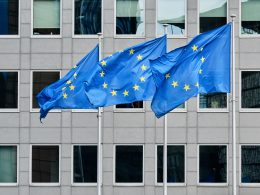The UK is set to introduce new principles for a voluntary market in nature credits, aiming to bolster biodiversity protection while promoting an innovative but still experimental financial product. Britain’s guidance, to be unveiled at the COP29 climate summit in Baku, highlights Prime Minister Keir Starmer’s commitment to intensified green initiatives, including a newly raised greenhouse gas emissions reduction target.
The framework will extend to carbon credits as well and will open for public consultation next year, according to a statement as seen by media houses. “Governments, civil society, and the private sector now have a clear framework of good practice to work from,” UK Climate Minister Kerry McCarthy said, emphasising the need to attract diverse financing sources to curb global temperature rise.
Nature credits—tradable units tied to biodiversity improvements—could drive an international market worth $69 billion by 2050, according to the World Economic Forum. However, concerns linger over potential greenwashing risks, similar to those that have affected the carbon offset market. In response, the UK aims to set a standard of integrity, clarifying how companies might use these credits to meet net-zero and biodiversity goals.
High-quality voluntary carbon and nature markets could unlock additional private financing, particularly for developing nations, the UK noted, with countries like India, Indonesia, and Brazil positioning themselves to attract funds for low-carbon technologies and sustainable land practices. The UK’s guidance will build on work by initiatives such as the Integrity Council for the Voluntary Carbon Market, marking a follow-up to the US government’s recent carbon market guidelines announced in May.
This initiative aligns with Britain’s revised emissions goal of reducing greenhouse gases by 81% from 1990 levels by 2035, a step up from the previous 78% target, aligning the UK’s policy with recommendations from its Climate Change Committee.















